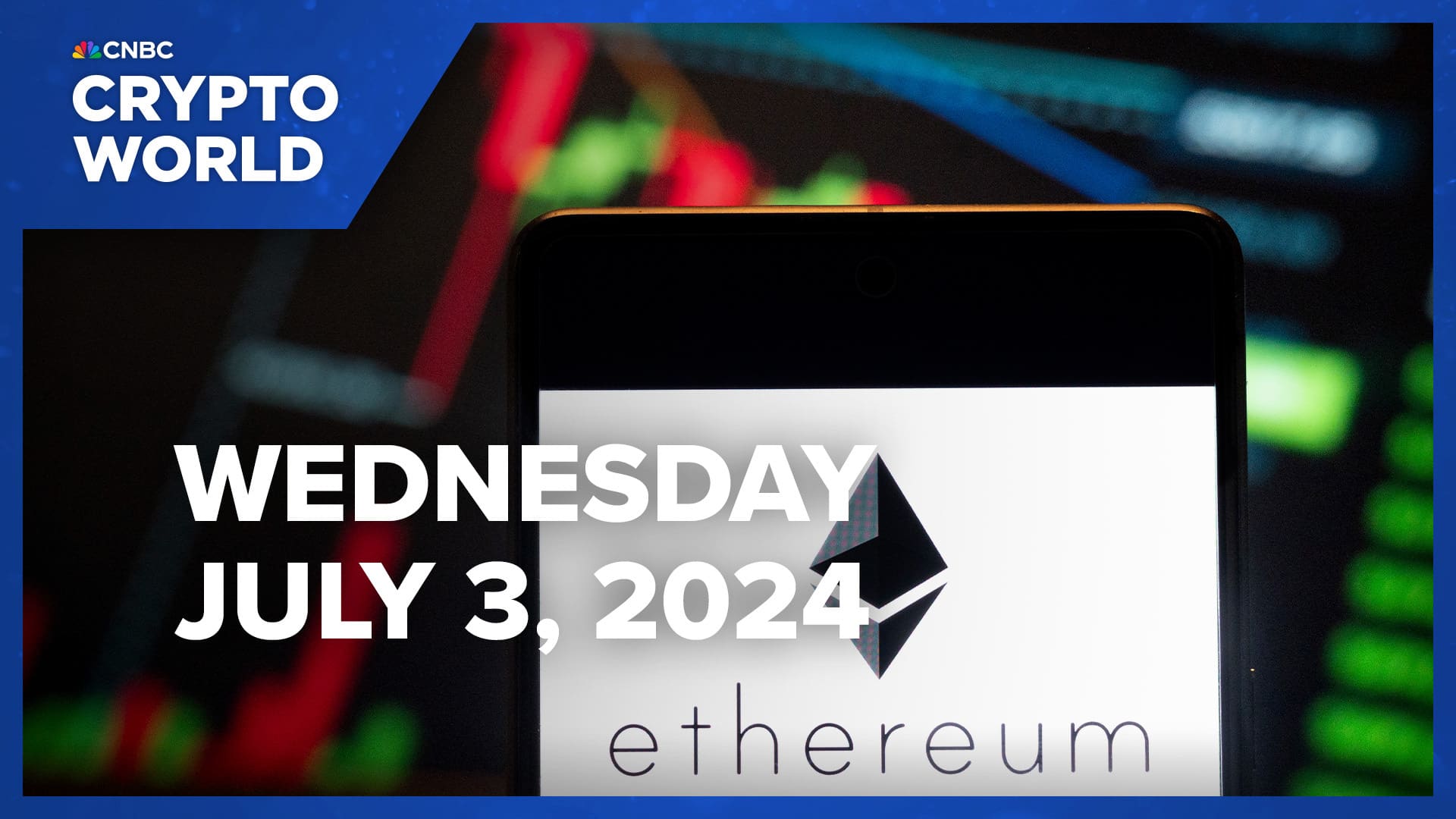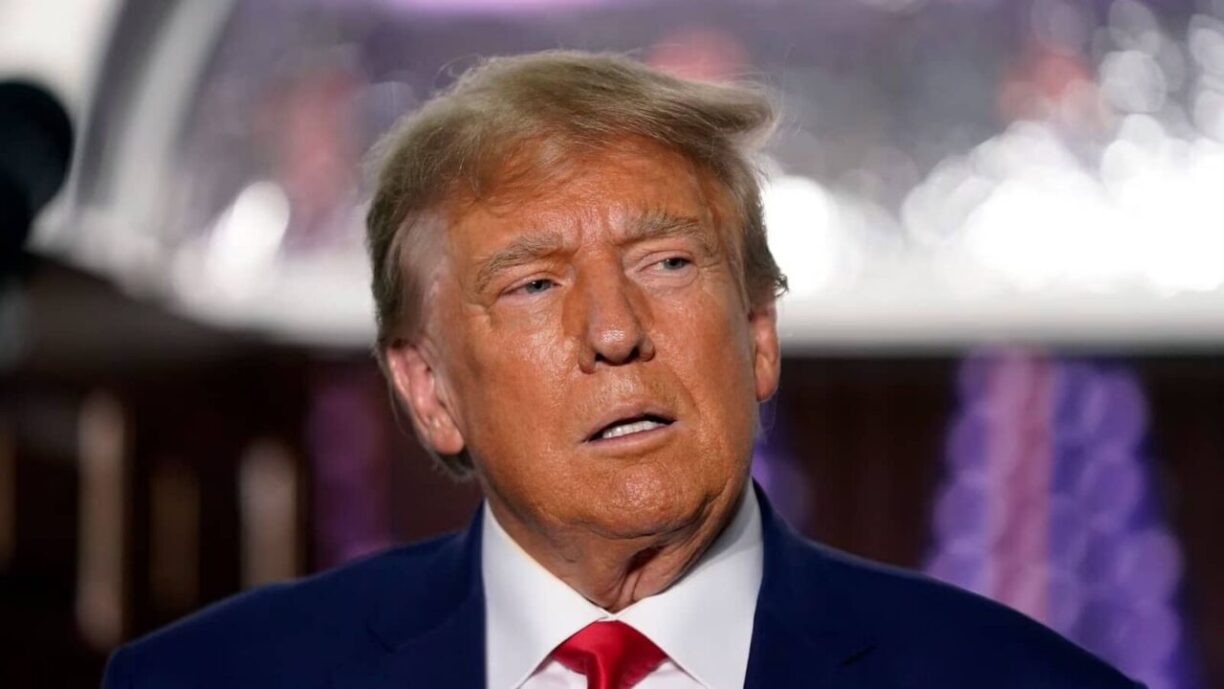News
Behind the arrest of a Binance employee in Nigeria, lies a request for a bribe

While traveling in Nigeria in January, Tigran Gambaryan, a compliance officer for the giant cryptocurrency exchange Binance, received a disturbing message: the company had 48 hours to make a payment of about $150 million in cryptocurrencies.
Mr. Gambaryan, a former U.S. law enforcement officer, interpreted the message as a request for a bribe from someone in the Nigerian government, according to five people familiar with the matter and the messages reviewed by The New York Times. He and a group of Binance colleagues had just met with Nigerian lawmakers, who accused the company of tax violations and threatened to arrest its employees.
Binance officials fled Nigeria in panic. Later that month, Mr. Gambaryan wrote a three-page report describing the payment demand and gave it to Binance lawyers, two people familiar with the report said. He also alerted Nigerian government contacts, the people said, and told them about the incident.
The episode was the backdrop to a second trip to Nigeria that Mr. Gambaryan made in February. Upon his return, he and a colleague, Nadeem Anjarwalla, were arrested by Nigerian authorities, sparking a crisis at Binance.
Mr. Gambaryan was detained in Kuje Prison in Nigeria’s capital, Abuja, for the past four weeks, after being transferred there from a government compound on April 8. His case is the latest legal headache for Binance, which has agreed to a $4.3 billion fine last year to resolve allegations made by the U.S. government that it allowed criminal activity to flourish on its platform. In April, the company’s founder, Changpeng Zhao, was condemned to four months in prison for his role in these violations.
Nigerian authorities have accused both Binance and Mr. Gambaryan of tax evasion and money laundering. Binance has denied that Mr. Gambaryan had some “decision-making power” within the company.
“The message from the Nigerian government is clear,” Binance CEO Richard Teng wrote in a blog post on Tuesday. “We must detain an innocent mid-level employee and former US federal agent and place him in a dangerous prison so we can control Binance.”
Zakari Mijinyawa, a spokesperson for Nigeria’s national security adviser, said in a text that the Nigerian government will argue its case “based on facts and evidence, in accordance with due process.”
“We are confident that Nigeria has good reasons,” Mijinyawa said. “Binance will similarly have every opportunity under the rule of law to make its case and see justice done.”
In the blog post, Teng told the story of Binance’s engagement with Nigeria, which has become a hot spot for the cryptocurrency industry. She has the second highest rate of cryptocurrency adoption in the world behind India, according to Chainalysis, a data firm.
In 2023, Nigerian financial regulators released a statement ordering Binance to stop soliciting investors in Nigeria. Binance stopped its advertising in the country and offered to meet with government officials, Teng said.
But tensions continued to rise. In recent months, Nigerian officials have argued that trading on Binance contributed to the collapse of the country’s currency, the naira. And in December, a committee of the Nigerian House of Representatives requested that Binance representatives appear for a hearing.
On January 8, Gambaryan and a group of Binance employees met with these lawmakers. The meeting soon turned contentious: Lawmakers read aloud a list of charges against Binance, including tax violations. They also threatened to issue an arrest warrant for Mr Teng, the blog post said.
As Binance employees left the meeting, Mr. Teng wrote, they were approached by “unknown persons” who suggested they make a payment to resolve the charges. Later, a local lawyer representing Binance spoke to someone purporting to be an agent of the House committee, Mr. Teng wrote.
The alleged agent requested “a significant payment in cryptocurrency to be made in secret within 48 hours to resolve these issues,” Teng wrote. The amount was about $150 million, four people familiar with the matter said.
“Our team became increasingly concerned about their safety in Nigeria and left immediately,” Mr Teng wrote in his post. “We, of course, rejected the request for payment through our lawyer, not considering it a legitimate settlement offer.”
After leaving Nigeria in January, Mr. Gambaryan discussed the incident with colleagues and released his report describing the demand for payment, two people familiar with the matter said.
Later that month, Gambaryan began arranging meetings with Nigerian officials responsible for security and financial crimes. At the time, she noted that senior leaders in the Financial Crimes Bureau were eager to discuss what had happened at the Jan. 8 meeting, a person familiar with the conversations said.
In a text message last month, Dele Oyewale, spokesman for Nigeria’s Financial Crimes Commission, declined to comment on the payment solicitation. She did not respond to a request for comment Monday.
In his post on Tuesday, Mr Teng wrote that Binance had received assurances that Mr Gambaryan would be safe if he returned to Nigeria. A corporate consultant with deep local ties recommended that Binance officials meet with the office of Nigeria’s national security adviser, Teng wrote.
Gambaryan and Anjarwalla arrived at the meeting on February 26. After a couple of hours of discussion, Teng writes, a Nigerian financial crime official took Gambaryan aside and told him that “everything was going well.”
Then several Nigerian officials entered the room, demanding Binance provide granular information about its users in Nigeria, a request the company was unwilling to comply with. The passports of Mr Gambaryan and Mr Anjarwalla were confiscated, and the two men were held for three weeks in a secure compound. On March 22, their lawyers received word that criminal charges were coming.
Mr Anjarwalla ran away the next day. He left Nigeria and has not spoken publicly since.
Mr. Gambaryan was alone in the compound. Shortly after his arrival, Nigerian financial crime officials sent a note to the U.S. Embassy in Abuja, according to a copy of the message seen by the Times.
“It is important to emphasize that Mr. Tigran is currently in discussions with our team and the purpose of his stay is solely for the purpose of constructive dialogue,” the letter reads. “We assure you that the individual willingly participates.”
Mr Gambaryan was soon transferred to Kuje, a notorious facility where the Islamic State staged a prison break in 2022.
The trial was supposed to begin last Thursday, but the court postponed it to May 17.
Julian E. Barnes and Glenn Thrush contributed reporting from Washington and Sunday Isuwa from Abuja, Nigeria.
News
How Ether Spot ETF Approval Could Impact Crypto Prices: CNBC Crypto World

ShareShare article via FacebookShare article via TwitterShare article via LinkedInShare article via email
CNBC Crypto World features the latest news and daily trading updates from the digital currency markets and gives viewers a glimpse of what’s to come with high-profile interviews, explainers and unique stories from the ever-changing cryptocurrency industry. On today’s show, Ledn Chief Investment Officer John Glover weighs in on what’s driving cryptocurrency prices right now and how the potential approval of spot ether ETFs could impact markets.
News
Miners’ ‘Capitulation’ Signals Bitcoin Price May Have Bottomed Out: CryptoQuant

According to CryptoQuant, blockchain data shows signs that the Bitcoin mining industry is “capitulating,” a likely precursor to Bitcoin hitting a local price bottom before reaching new highs.
CryptoQuant analyzed metrics for miners, who are responsible for securing the Bitcoin network in exchange for newly minted BTC. As outlined in the market intelligence platform’s Wednesday report, multiple signs of capitulation have emerged over the past month, during which Bitcoin’s price has fallen 13% from $68,791 to $59,603.
One such sign includes a significant drop in Bitcoin’s hash rate, the total computing power that backs Bitcoin. After hitting a record high of 623 exashashes per second (EH/s) on April 27, the hash rate has fallen 7.7% to 576 EH/s, its lowest level in four months.
“Historically, extreme hash rate drawdowns have been associated with price bottoms,” CryptoQuant wrote. In particular, the 7.7% drawdown is reminiscent of an equivalent hash rate drawdown in December 2022, when Bitcoin’s price bottomed at $16,000 before rallying over 300% over the next 15 months.
This latest hash rate drop follows Bitcoin’s fourth cyclical “halving” event in April, which cut the number of coins paid out to miners in half. According to CryptoQuant’s Miner Profit/Loss Sustainability Indicator, this has left miners “mostly extremely underpaid” since April 20, forcing many to shut down mining machines that have now become unprofitable.
CrypotoQuant said that miners faced a 63% drop in daily revenue after the halving, when both Bitcoin block rewards and transaction fee revenues were much higher.
During this time, Bitcoin miners were seen moving coins from their on-chain wallets at a faster rate than usual, indicating that they may be selling their BTC reserves“Daily miner outflows reached their highest volume since May 21,” the company wrote.
Among the sales of Bitcoin miners, whales and national governmentsBitcoin’s price drop in June also hurt Bitcoin’s “hash price,” a metric of Bitcoin Miner Profitability per unit of computing power.
“Average mining revenue per hash (hash price) continues to hover near all-time lows,” CryptoQuant wrote. “Hashprice stands at $0.049 per EH/s, just above the all-time low hashprice of $0.045 reached on May 1st.”
By Ryan-Ozawa.
News
US Congressman French Hill Doubles Down on Trump’s Pro-Crypto Stance

US lawmaker French Hill has noted that Donald Trump will take a more pro-crypto approach than the current administration. The run-up to the presidential election has seen cryptocurrencies become an issue with lawmakers making huge statements ahead of the polls. Donald Trump has also been reaching out to the industry, making a pro-crypto case.
French Hill Backs Trump’s Pro-Crypto Stance
Republican Congressman French Hill has explained the type of cryptocurrency regulatory framework he believes Donald Trump could adopt in the country. In a recent interview with CNBC, French Hill said that the recently passed FIT21 bill is the type of regulatory framework the Trump administration will adopt in the sector.
#FIT21 passed the House with 71 Democratic votes, it’s exactly the kind of digital asset regulatory framework former President Trump would support if re-elected.
See more on @SquawkCNBC🔽 photo.twitter.com/ceTmU4LApU
— French Hill (@RepFrenchHill) July 3, 2024
THE FIT21 Bill It is intended to protect investors and consumers in the market by establishing clear rules and powers for the various regulators in the sector. According to Hill, Trump will adopt it because it directs the Securities and Exchange Commission (SEC) and the Commodity Futures Trading Commission (CFTC) on the specific regulatory framework needed in the market.
“… for people who are innovating and starting a crypto token, a related business, custody of those assets, how to ensure consumer protection, so I think that framework is the right approach and that’s what I’m going to recommend to the President to pass, which is that we have not passed it between now and the end of this Congress.”
He also called Trump an innovative and pro-growth president in financial matters.
Cryptocurrency is going mainstream
This election cycle saw the cryptocurrency industry taking a place in mainstream issues following broader adoption across demographics. From candidates moving toward enthusiasts to recent pro-Congress legislation, cryptocurrencies have become a rallying point for officials. The U.S. regulatory landscape has been criticized for stifling growth due to frequent SEC LawsuitsThis has led executives to push for pro-cryptocurrency laws and raise money for pro-industry candidates.
Read also: Federal Reserve Predicts “AI Will Be Deflationary” to Stimulate Economy
David is a financial news contributor with 4 years of experience in Blockchain and cryptocurrency. He is interested in learning about emerging technologies and has an eye for breaking news. Keeping up to date with trends, David has written in several niches including regulation, partnerships, cryptocurrency, stocks, NFTs, etc. Away from the financial markets, David enjoys cycling and horseback riding.
News
US Court Orders Sam Ikkurty to Pay $84 Million for Cryptocurrency Ponzi Scheme

A federal court has ordered Jafia LLC and its owner, Sam Ikkurty, to pay nearly $84 million to cryptocurrency investors after ruling that the company was operating a Ponzi scheme.
The ruling, issued by Judge Mary Rowland in the U.S. District Court for the Northern District of Illinois, follows a lawsuit filed by the Commodity Futures Trading Commission (CFTC) in 2022 after the fund collapsed.
Judge Rowland found that Ikkurty, based in Portland, Oregon, did numerous false claims on his company’s hedge funds.
These included misleading statements about his trading experience and the promise of high and stable profits. Instead, Ikkurty used funds from new investors to pay off previous investors, a hallmark of a Ponzi scheme.
The Ponzi Scheme
The court found that Ikkurty misappropriated investment funds for personal use without the knowledge of the investors. These funds were used for personal use and were reported as Fraudulent Investmentscausing significant financial losses to customers.
This non-transparent operation violated Transparency Commission regulations, which led to the imposition of a hefty fine to compensate defrauded investors and restore some public confidence in the financial system.
Judge Rowland emphasized that fraudulent activity such as this violates the law and undermines the integrity of modern financial markets. The $84 million award seeks to address the financial harm inflicted on investors and reinforce the importance of legal compliance in cryptocurrency trading.
-

 Videos9 months ago
Videos9 months agoBitcoin Price AFTER Halving REVEALED! What’s next?
-

 Bitcoin8 months ago
Bitcoin8 months agoBitcoin Could Test Record Highs Next Week in ETF Flows, Says Analyst; Coinbase appears in the update
-

 Videos9 months ago
Videos9 months agoAre cryptocurrencies in trouble? Bitcoin Insider Reveals “What’s Next?”
-

 Videos9 months ago
Videos9 months agoCryptocurrency Crash Caused by THIS…
-

 Videos8 months ago
Videos8 months agoThe REAL reason why cryptocurrency is going up!
-

 Altcoin8 months ago
Altcoin8 months agoThe best Altcoins to buy before they rise
-

 Videos9 months ago
Videos9 months agoBlackRock Will Send Bitcoin to $116,000 in the Next 51 Days (XRP News)
-

 Videos9 months ago
Videos9 months agoDonald Trump: I like Bitcoin now! Joe Biden HATES cryptocurrencies.
-

 Videos8 months ago
Videos8 months agoSolana Cryptocurrencies: the future WILL SHOCK you | What comes next?
-

 News9 months ago
News9 months agoTON, AKT, AR expect increases of 15%+ as the market stabilizes
-

 Videos8 months ago
Videos8 months agoBitcoin Whale REVEALS: The 5 Best Coins to Make You a Millionaire!
-

 Videos8 months ago
Videos8 months agoBREAKING NEWS: The 19 best cryptocurrencies ready to skyrocket!





